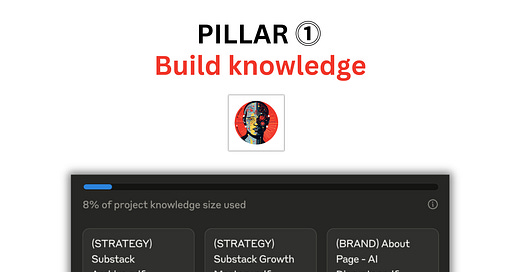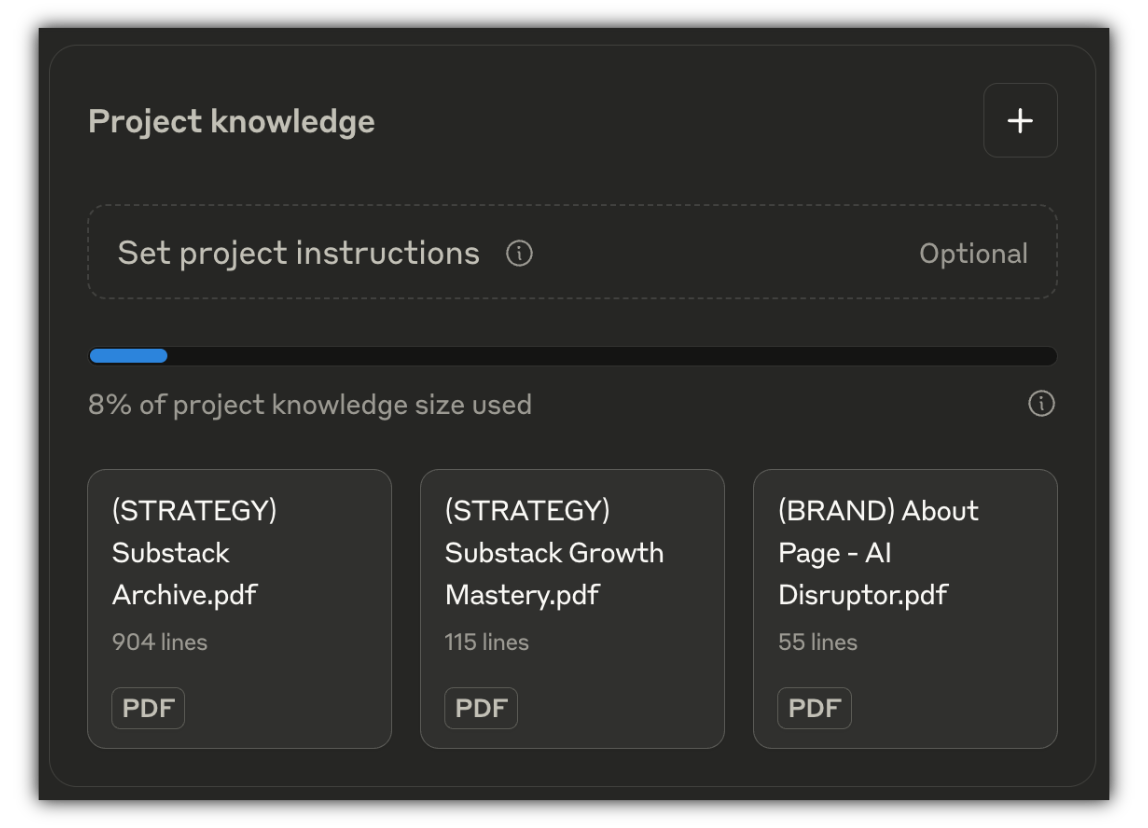"Use this trick to get output X." "Steal this formula." "Paste this into ChatGPT."
If you've been following AI content advice, you've seen these headlines everywhere. The promise is always the same: find the right prompt, get perfect output, publish faster.
But here's what actually happens: you get generic content that sounds like everyone else's. You spend more time rewriting than it would have taken to write it yourself. You end up frustrated, wondering why everyone else seems to be getting better results.
The truth? You can't prompt your way out of a blank brain.
Not familiar with my 3-pillar AI writing system yet? → Read this first
The real problem with AI content
Most people approach AI writing completely backwards.
They think the secret is in the prompt itself. So they collect basic prompts without variables or context and expect magic results. But when they use these generic, one-size-fits-all prompts, the content lacks personality. It could have been written by anyone.
Here's why: your AI doesn't know anything about you.
If you hired a ghostwriter, you wouldn't just give them a single generic instruction and expect perfection. You'd teach them your perspective, your audience, your style. You'd share examples of your best work and help them understand what makes your approach unique.
But with AI, we expect it to read our minds from basic prompts with no context.
That's the blank brain problem. Your AI is incredibly capable, but it only knows what you teach it. Without knowledge of your voice, standards, or approach, even the best systematic prompts can only take you so far.
What changes when you build the foundation
When I was ghostwriting for AI founders and building my own newsletter, I learned something crucial very quickly: the quality of my output was directly tied to how well I understood the voice and approach I was writing in.
For client work, the best projects didn't just give me topic assignments. They shared their previous content, explained their thinking process, and helped me understand their audience. Over time, I could write in their voice so effectively that their teams couldn't tell the difference.
For my own newsletter, I had to develop that same systematic understanding of my own voice, audience, and approach. What worked? What didn't? What made my content different from the thousands of other AI newsletters out there?
This same principle applies to AI writing, but almost everyone skips this step.
When you build that foundation properly, everything changes. Instead of fighting with generic responses, you get content that sounds like something you would actually write. Your AI begins to understand your standards, style, and approach. You stop rewriting everything and start refining instead.
The two types of knowledge that matter
Building your AI's knowledge isn't about dumping random information into a folder. It's about creating at least two specific types of intelligence.
1. Brand
This is everything that makes your voice unique. It can include samples of your best writing (even if you used AI to come up with those samples), so your AI learns your natural rhythm, tone, and style.
Your bio, origin story, and core beliefs help it understand your perspective. Even your formatting preferences matter because they ensure consistency.
When you feed your AI this brand intelligence, it stops sounding like a generic content generator and learns the subtle elements that make your voice distinctive.
2. Strategy
This is about how you approach your work and what influences your thinking. This includes notes from creators you admire, launch breakdowns, content formulas, and audience insights.
This strategic knowledge helps your AI make better decisions about content direction and positioning. Instead of generic advice, it suggests approaches that align with your specific audience and goals.
Together, these create an AI that doesn't just follow instructions, but understands the context behind those instructions.
The 5-question reality check
Not sure whether you've built a strong enough foundation? Ask yourself:
Can you tell the difference between content it creates and content any other AI would produce?
Does it understand what quality means in your specific context?
Does it know what makes your approach different, or does it default to the same generic advice everyone else gives?
Are you actually curating valuable insights, or just collecting random information?
If your AI system disappeared tomorrow, would your process survive?
If any of these questions make you uncomfortable, that's good news. It means you recognize the opportunity to build something better.
What happens next
Building your knowledge foundation isn't a one-time task. It's an ongoing process that gets stronger as you add more examples and refine your frameworks.
But once you have this foundation in place, something remarkable happens: you unlock the ability to truly collaborate with AI instead of just giving it instructions.
Next, we'll explore Pillar 2: Co-write with AI.
You'll learn how to move beyond systematic prompts into genuine collaboration, where you and your AI work together to create content that captures your voice while leveraging AI's speed and structure.
That's where the real breakthrough happens.
The creators who invest in building proper foundations will have a massive advantage over those still looking for magic bullet solutions.
Alex
Founder of AI Disruptor







My new go-to line: "You can’t prompt your way out of a blank brain."
As always, good stuff. Very useful.